In the world of superfoods, there’s one that stands out for its incredible nutritional benefits and versatility – Moringa powder. Often referred to as the “Green Goodness for Life,” Moringa powder has gained popularity as a powerful dietary supplement and natural remedy. In this article, we’ll explore the myriad benefits and uses of Moringa powder, uncover its nutritional profile, and discuss how you can incorporate it into your daily routine for a healthier lifestyle.
Introduction
Moringa oleifera, commonly known as the Moringa tree, is native to parts of Africa and Asia. This tree has been treasured for centuries due to its various medicinal and nutritional properties. Its leaves, in particular, are a rich source of essential vitamins, minerals, and antioxidants, making it a superfood.
Table of Contents
What Is Moringa Powder?
Moringa powder is a finely ground substance made from the dried leaves of the Moringa oleifera tree. This tree is native to regions of Africa and Asia and is renowned for its exceptional nutritional properties. The leaves are carefully harvested, dried, and then pulverized into a green, nutrient-rich powder. Moringa powder is known for its impressive concentration of vitamins, minerals, and antioxidants, making it a valuable dietary supplement and a versatile ingredient for various culinary applications. This natural product has gained recognition for its potential health benefits and is widely used to enhance overall well-being.
Nutritional Powerhouse
Moringa powder is often regarded as a “nutritional powerhouse” for good reason—it is exceptionally rich in essential nutrients and antioxidants. This green powder is derived from the leaves of the Moringa oleifera tree, which is native to Africa and Asia. Let’s delve into the specifics of why Moringa powder earns this reputation:
- Vitamins and Minerals: Moringa powder is loaded with essential vitamins. It is a potent source of vitamin A, which is crucial for vision and immune function. It also provides a substantial amount of vitamin C, known for its immune-boosting properties. In addition, Moringa powder contains significant levels of calcium for strong bones and teeth, as well as iron to combat anemia and support overall health.
- Antioxidant Properties: Moringa powder is teeming with antioxidants, including quercetin, chlorogenic acid, and beta-carotene. Antioxidants are vital because they help neutralize harmful free radicals in the body, reducing oxidative stress and lowering the risk of chronic diseases.
- Amino Acids: It’s worth noting that Moringa powder contains all nine essential amino acids, making it a complete protein source for vegetarians and vegans. Amino acids are the building blocks of proteins and are essential for various bodily functions.
- Nutrient Density: The nutrient density of Moringa powder is impressive. This means that it provides a wide array of essential nutrients in a small serving size, making it an efficient way to meet daily nutritional requirements.
- Natural Source: What sets Moringa powder apart is that it is derived from a natural source. Unlike synthetic supplements, Moringa offers nutrients in their natural form, which can be more easily absorbed and utilized by the body.
- Sustainable Growth: Moringa trees are known for their rapid growth and resilience in challenging environmental conditions. They require minimal water and can thrive in arid regions, contributing to sustainability efforts.
Incorporating Moringa powder into your diet can be an effective way to enhance your overall nutrition. Its high nutritional content and antioxidant properties make it a valuable addition to smoothies, teas, salads, and various culinary creations. However, it’s essential to use it in moderation and consult with a healthcare professional if you have any specific dietary concerns or health conditions.
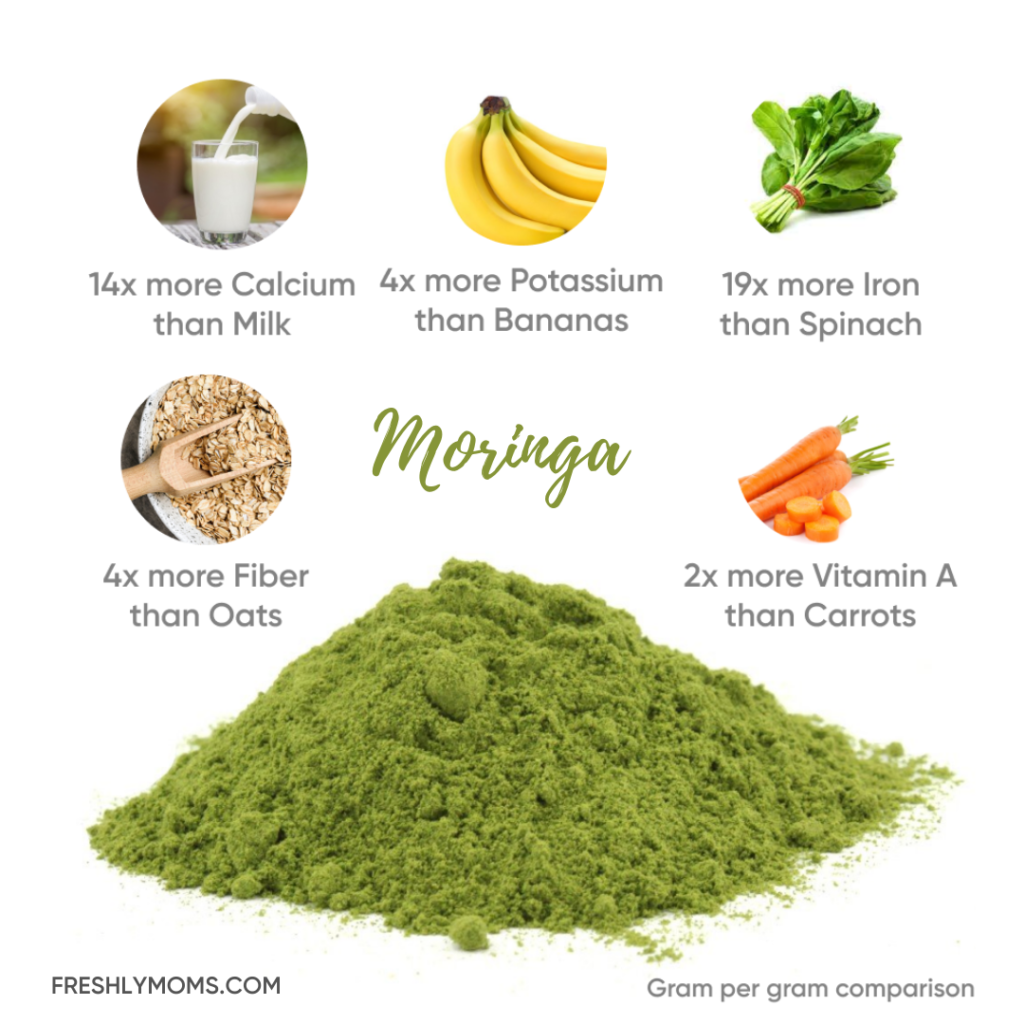
Health Benefits
Moringa powder offers a wide array of health benefits, making it a valuable addition to your daily dietary regimen. Here are some of the significant health advantages associated with consuming Moringa powder:
Boosting Immunity
Moringa powder is renowned for its immune-boosting properties. It contains a wealth of essential nutrients, including vitamins A, C, and E, as well as minerals like iron and zinc, all of which play pivotal roles in supporting a robust immune system. Regular consumption of Moringa powder can help your body fend off common illnesses and infections more effectively.
Managing Blood Sugar Levels
Research suggests that Moringa powder may be beneficial for individuals dealing with diabetes or those looking to manage their blood sugar levels. The plant compounds found in Moringa have demonstrated the ability to regulate blood glucose, making it a potentially helpful supplement for those with diabetes.
Supporting Digestive Health
Moringa powder is a rich source of dietary fiber, which is essential for maintaining a healthy digestive system. Adequate fiber intake aids in regular bowel movements, prevents constipation, and supports overall gut health. Incorporating Moringa powder into your diet can contribute to a well-functioning digestive system.
Enhancing Skin and Hair
The vitamins, minerals, and antioxidants present in Moringa powder can work wonders for your skin and hair. Vitamin A, for example, promotes healthy skin by reducing acne and promoting a radiant complexion. Antioxidants combat free radicals, which can lead to premature aging. Additionally, Moringa’s nutritional content can strengthen hair follicles and encourage hair growth, making it a natural remedy for hair health.
Antioxidant Properties
Moringa powder is known for its high antioxidant content, including quercetin, chlorogenic acid, and beta-carotene. These antioxidants help combat oxidative stress in the body, protecting cells from damage and reducing the risk of chronic diseases.
Anti-Inflammatory Effects
Some studies suggest that Moringa possesses anti-inflammatory properties, which can help alleviate inflammation-related conditions such as arthritis and other inflammatory disorders. These effects may be attributed to the presence of bioactive compounds in Moringa.
Incorporating Moringa powder into your daily routine can provide you with these remarkable health benefits. Whether you choose to add it to your smoothies, teas, or salads, or use it as a dietary supplement, Moringa’s nutritional profile can contribute to your overall well-being. However, it’s essential to consult with a healthcare professional before making significant dietary changes, especially if you have specific health concerns or are taking medications.
How to Use Moringa Powder
Incorporating Moringa powder into your daily routine is easy and can be quite enjoyable. This versatile superfood can enhance the nutritional value of various dishes and beverages. Here are some creative and practical ways to use Moringa powder:
Moringa Smoothie
One of the simplest and most popular ways to enjoy Moringa powder is by adding it to your morning smoothie. Here’s how:
- Ingredients:
- 1 ripe banana
- 1 cup of spinach or kale (for added greens)
- 1/2 cup of frozen berries (such as blueberries or strawberries)
- 1 teaspoon of Moringa powder
- 1 cup of your choice of liquid (water, almond milk, coconut water, etc.)
- Honey or maple syrup for sweetness (optional)
- Instructions:
- Place all the ingredients in a blender.
- Blend until smooth and creamy.
- Adjust sweetness with honey or maple syrup if desired.
- Pour into a glass and enjoy your nutritious Moringa smoothie!
Moringa Tea
Moringa tea is another delightful way to incorporate this superfood into your daily routine. Here’s how to make it:
- Ingredients:
- 1 teaspoon of Moringa powder
- 1 cup of hot water
- Lemon or honey for flavor (optional)
- Instructions:
- Boil a cup of water and let it cool slightly.
- Add a teaspoon of Moringa powder to a cup.
- Pour the hot water over the Moringa powder.
- Stir well and let it steep for a few minutes.
- You can add a squeeze of lemon or a drizzle of honey for extra flavor, if desired.
Moringa Salad Dressing
Moringa powder can elevate the nutritional content of your salad dressings. Here’s a simple recipe:
- Ingredients:
- 1 teaspoon of Moringa powder
- 2 tablespoons of olive oil
- 1 tablespoon of lemon juice
- Salt and pepper to taste
- Optional: minced garlic, Dijon mustard, or honey for added flavor
- Instructions:
- In a small bowl, combine Moringa powder, olive oil, and lemon juice.
- Whisk the ingredients together until the Moringa powder is fully incorporated.
- Add salt and pepper to taste.
- You can also experiment with additional ingredients like minced garlic, Dijon mustard, or honey to suit your taste preferences.
- Drizzle the dressing over your favorite salads for an extra nutritional boost.
These are just a few creative ways to use Moringa powder in your daily meals. Feel free to experiment and incorporate it into other recipes, such as soups, sauces, or even baked goods, to enjoy the health benefits and the unique flavor of this green superfood. Remember to start with small quantities and gradually increase your intake as you become accustomed to the taste and effects of Moringa.
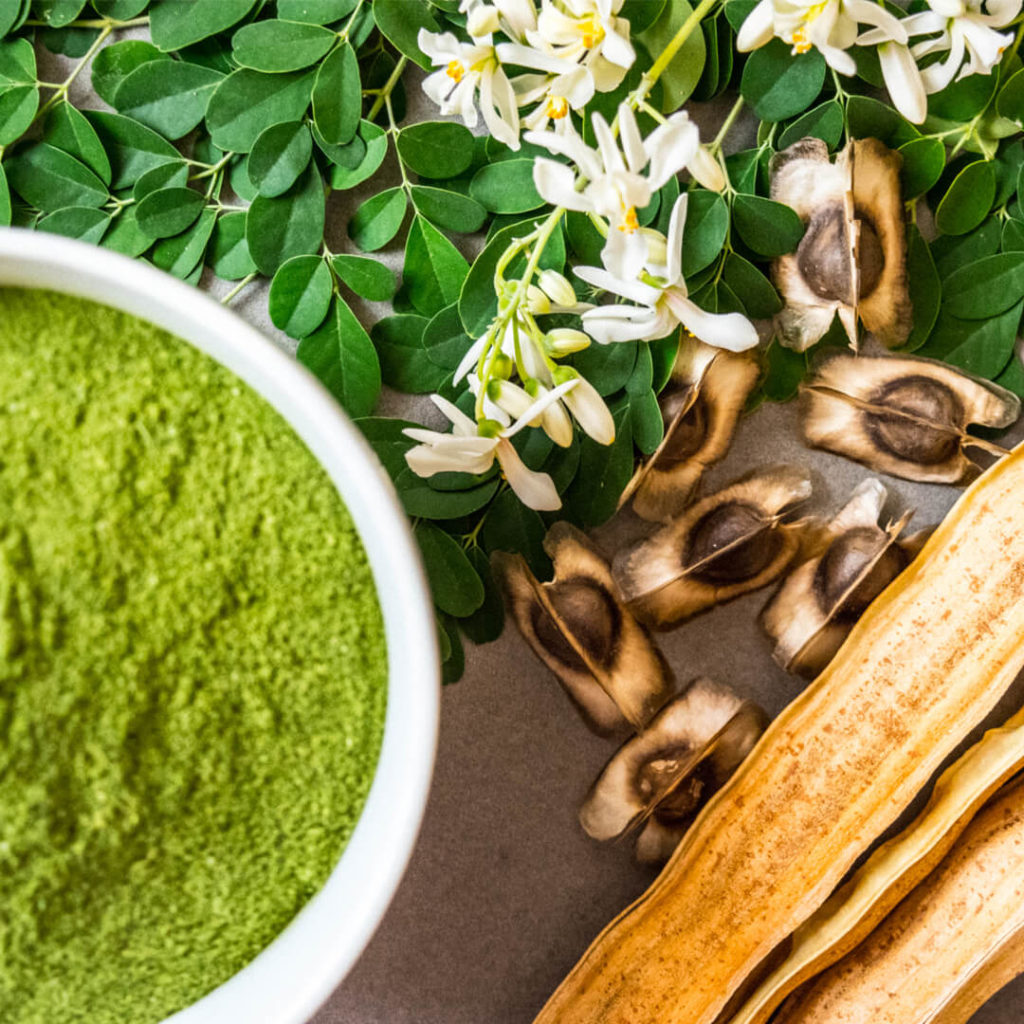
Buying and Storing Moringa Powder
Buying Moringa Powder
- Source and Quality: Choose a reputable supplier when purchasing Moringa powder. Look for brands that offer certified organic products to ensure you are getting a high-quality, pure product without contaminants.
- Packaging: Pay attention to the packaging of the Moringa powder. It should be sealed in airtight, light-proof containers to preserve its freshness and nutritional value.
- Color and Smell: Quality Moringa powder should have a vibrant green color and a fresh, earthy smell. Avoid powders that appear dull or have an unpleasant odor, as these may indicate poor quality or improper storage.
- Reviews and Recommendations: Read customer reviews and seek recommendations from trusted sources or health food stores to identify brands with a good reputation for quality.
Storing Moringa Powder
Proper storage is essential to maintain the freshness and potency of your Moringa powder:
- Cool and Dark: Store your Moringa powder in a cool, dark place. Exposure to heat and direct sunlight can cause it to deteriorate and lose its nutritional value.
- Airtight Container: Keep the Moringa powder in an airtight container to prevent moisture and air from degrading its quality. A resealable bag or a glass jar with a tight-fitting lid works well.
- Avoid Humidity: Ensure that the storage area is dry and free from humidity. Moisture can lead to clumping and spoilage of the powder.
- Use Quickly: While Moringa powder has a relatively long shelf life, it’s best to use it within a reasonable timeframe to enjoy its maximum benefits. Aim to consume it within a few months to a year.
- Refrigeration (Optional): While not necessary, some people choose to store their Moringa powder in the refrigerator to extend its shelf life. Just be sure it’s in an airtight container to prevent moisture absorption.
By following these guidelines when buying and storing Moringa powder, you can ensure that you have a high-quality, nutrient-rich product that remains fresh and effective for enhancing your overall nutrition.
The Sustainability of Moringa
he sustainability of Moringa, also known as the Moringa oleifera tree, is a compelling aspect of this remarkable plant. Moringa trees are often referred to as “drumstick trees” or “miracle trees” due to their many beneficial qualities, including their sustainability.
Here are some key points that highlight the sustainability of Moringa:
- Fast Growth: Moringa trees are renowned for their rapid growth. They can grow up to 15 feet or more in a single year, making them one of the fastest-growing trees on the planet. This rapid growth rate allows for quick harvests and consistent availability of Moringa leaves and pods.
- Minimal Water Requirements: Moringa trees are highly drought-resistant, requiring far less water than many other crops. This is particularly important in regions with limited water resources, where Moringa can thrive even in arid conditions.
- Versatile Cultivation: Moringa trees are adaptable and can be cultivated in a variety of soil types, including poor and sandy soils. They can grow in tropical and subtropical climates, making them suitable for a wide range of geographical locations.
- Nutrient-Rich Leaves and Pods: The leaves and pods of the Moringa tree are exceptionally nutritious. This means that a small amount of Moringa can provide a substantial amount of essential nutrients, reducing the need for larger agricultural areas to meet nutritional requirements.
- Reduced Soil Erosion: Moringa trees have deep root systems that help stabilize soil and prevent erosion. This is especially valuable in regions prone to soil degradation and erosion.
- Local Economic Opportunities: The cultivation and processing of Moringa offer economic opportunities for local communities. Farmers can grow Moringa trees for personal consumption and sale, creating income-generating possibilities.
- Environmental Benefits: Moringa trees absorb carbon dioxide from the atmosphere, helping mitigate climate change. Additionally, their leaves can be used for livestock feed, reducing the need for deforestation to create grazing land.
- Sustainable Food Source: Moringa leaves and pods are not only nutritious but also versatile as food sources for humans and animals. This can help alleviate food insecurity in areas where malnutrition is a concern.
In summary, the sustainability of Moringa lies in its ability to grow quickly, thrive in challenging conditions, provide essential nutrients, and offer economic opportunities to local communities. Its environmentally friendly characteristics, such as reduced water requirements and soil stabilization, make it an attractive crop for sustainable agriculture and food security efforts worldwide. As a result, the Moringa tree plays a significant role in promoting sustainability in both agriculture and nutrition.
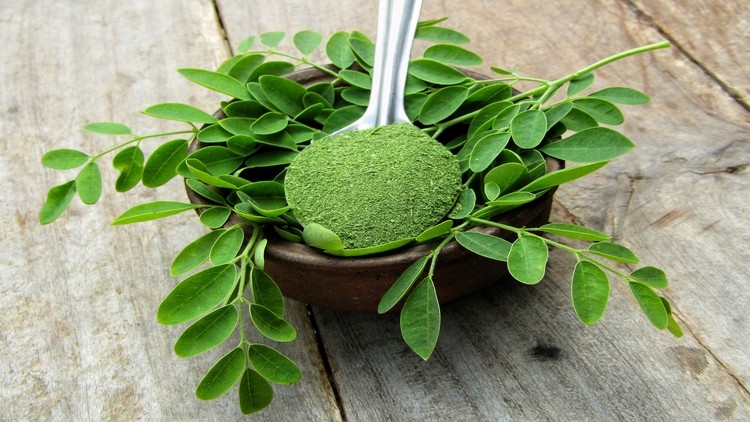
Source to Get Organic Moringa Leaf Powder Capsules
Frequently Asked Questions (FAQs)
Is Moringa powder safe for children and pregnant women?
Moringa powder is generally safe for most people, but it’s advisable for pregnant women and children to consult a healthcare professional before using it as a supplement.
Can Moringa powder replace my multivitamin supplement?
While Moringa is highly nutritious, it’s not a replacement for a balanced diet or multivitamin supplements. It can be a valuable addition to your daily routine.
Where can I buy high-quality Moringa powder?
You can find high-quality Moringa powder online or at health food stores. Ensure the product is certified organic and free from contaminants.
What is the recommended daily dosage of Moringa powder?
The recommended dosage varies, but a typical serving is 1-2 teaspoons per day. However, consult with a healthcare professional for personalized guidance.
Can I grow my Moringa tree at home?
Yes, you can! Moringa trees are relatively easy to grow in warm climates or as potted plants indoors.
In conclusion, Moringa powder is a green powerhouse that offers numerous health benefits. Its versatility and nutritional density make it an excellent addition to your daily routine. Just remember to source high-quality Moringa powder, use it in moderation, and consult a healthcare professional if you have any concerns. Embrace the “Green Goodness for Life” and take a step towards a healthier you.
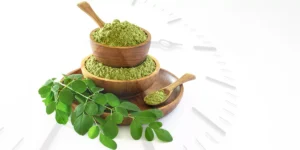




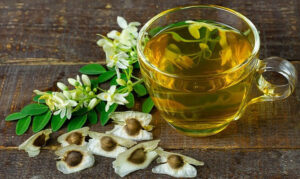
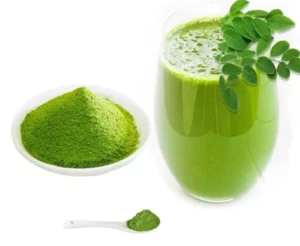


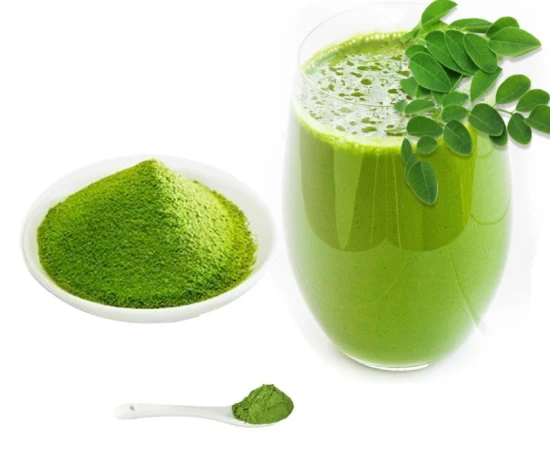
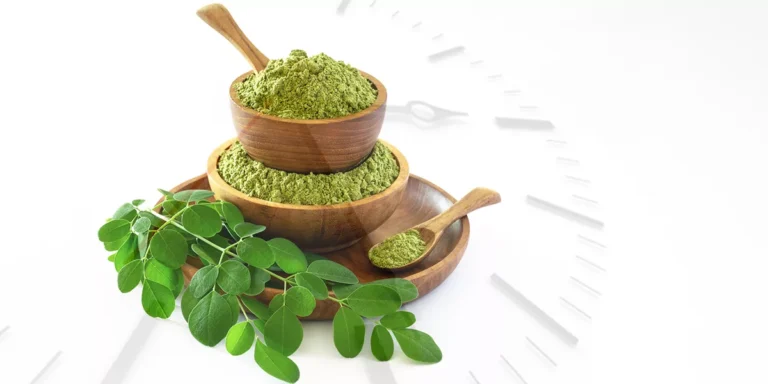

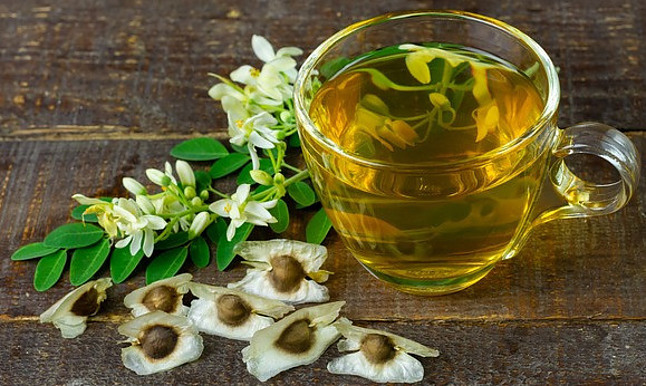




+ There are no comments
Add yours